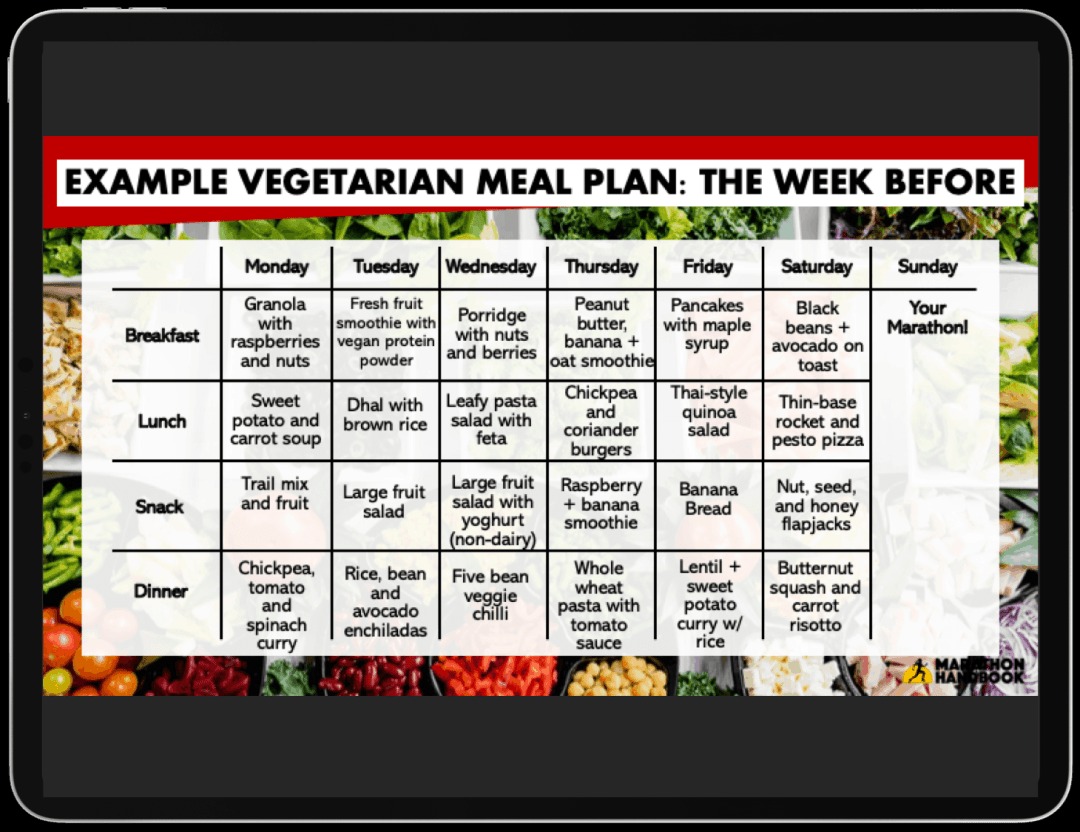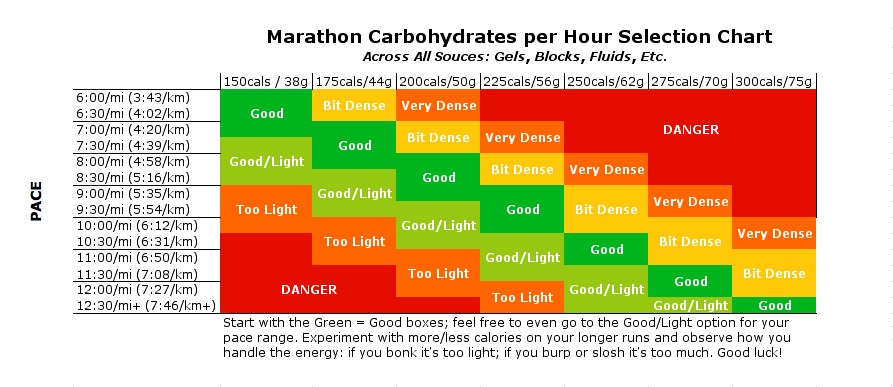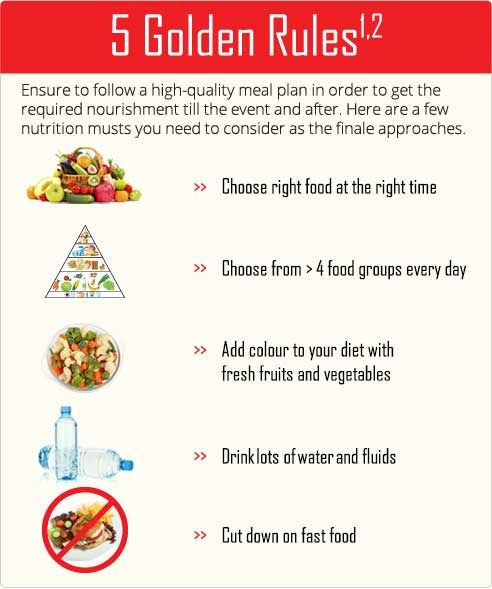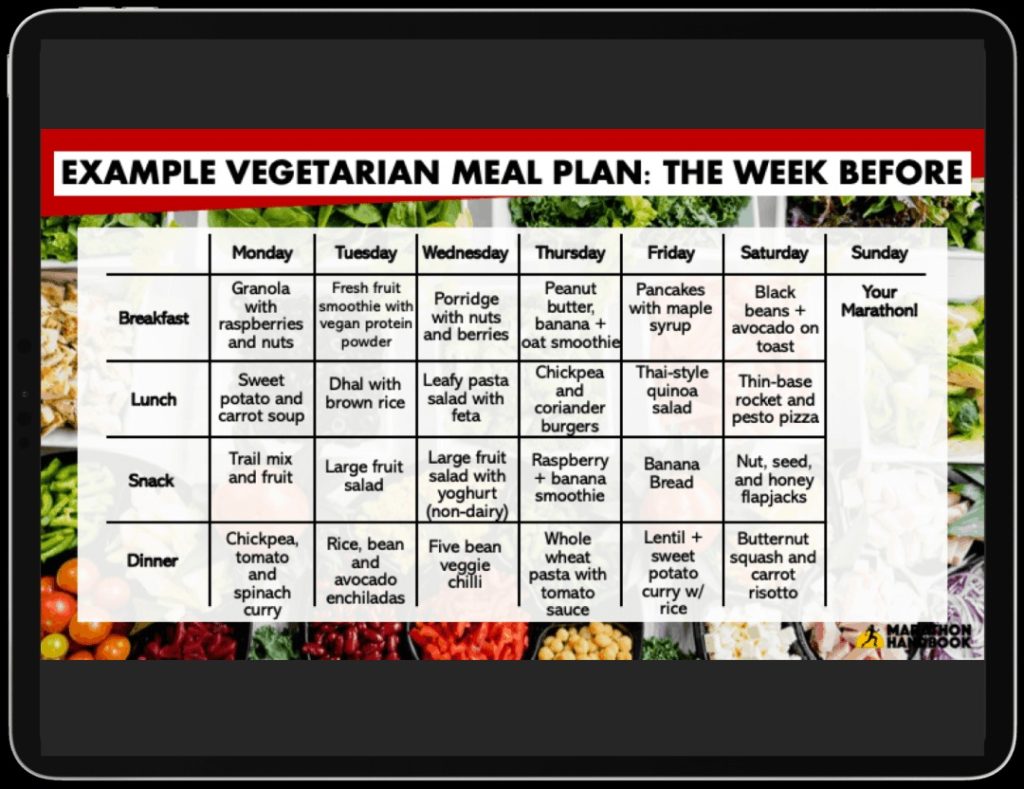Marathon nutrition is the foundation of every successful 26.2-mile race. While rigorous training builds your endurance, proper marathon nutrition can make the difference between hitting the wall and crossing the finish line strong. Just as a high-performance vehicle needs premium fuel, your body requires optimal nutrition to power through the demanding marathon distance.
Many runners focus intensely on their training plans but overlook the critical role of pre-marathon nutrition. Without the right fuel strategy, even the most well-trained athletes can experience energy crashes, digestive issues, or poor performance on race day. This comprehensive marathon nutrition guide will show you exactly what to eat, when to eat it, and how to optimize your diet for peak marathon performance.

Why Marathon Nutrition Matters
Marathon nutrition directly impacts your:
- Energy levels throughout the 26.2-mile distance
- Muscle recovery and repair
- Immune system function
- Mental focus and motivation
- Overall race day performance
Poor nutrition choices can lead to “bonking” (hitting the wall), gastrointestinal distress, or premature fatigue that derails months of training.
Best Foods for Marathon Nutrition
Complex Carbohydrates for Sustained Energy
Whole Grains Whole grains form the cornerstone of effective marathon nutrition. Unlike simple carbohydrates that provide quick but short-lived energy, whole grains deliver sustained fuel for your 26.2-mile journey.
Top whole grain choices include:
- Oatmeal: Rich in beta-glucan fiber and provides steady energy release
- Quinoa: Complete protein plus complex carbs in one superfood
- Brown rice: Easy to digest with excellent carbohydrate content
- Whole grain pasta: Classic carb-loading option for marathon runners
- Whole wheat bread: Convenient source of quality carbohydrates
These foods provide not only energy but also essential B vitamins, fiber, and minerals crucial for optimal marathon performance nutrition.
Sweet Potatoes Sweet potatoes are marathon nutrition powerhouses, especially when eaten with the skin. They’re loaded with:
- Complex carbohydrates for sustained energy
- Potassium to prevent muscle cramps
- Beta-carotene for immune support
- Fiber for digestive health
Try baked sweet potatoes topped with a protein source like eggs or Greek yogurt for a complete pre-marathon meal.
Bananas Often called “nature’s energy bar,” bananas are perfect for marathon nutrition. They provide:
- Natural sugars for quick energy
- Potassium to replace electrolytes lost through sweat
- Vitamin B6 for energy metabolism
- Vitamin C for immune support
Frozen bananas blended into smoothies make excellent alternatives to commercial sports drinks, giving you natural fuel without artificial additives.
Protein Sources for Recovery and Muscle Support
Lean Beef Quality protein is essential in marathon nutrition for muscle repair and recovery. Lean beef provides:
- High-quality complete protein
- Iron for oxygen transport
- Zinc for immune function
- B vitamins for energy metabolism
Choose grass-fed options when possible for optimal nutrient density.
Eggs Eggs are among the most versatile foods in marathon nutrition. A single egg delivers:
- 6 grams of complete protein
- Choline for brain function and muscle movement
- Vitamin D for bone health
- Anti-inflammatory properties

The amino acid profile in eggs is ideal for muscle recovery, making them perfect for your marathon diet.
Salmon and Fatty Fish Wild-caught salmon elevates your marathon nutrition with:
- High-quality protein for muscle repair
- Omega-3 fatty acids for inflammation control
- Vitamin D for mood and immune support
- Selenium for antioxidant protection
Regular fish consumption supports both training recovery and race day performance.
Greek Yogurt For vegetarian marathon runners, Greek yogurt is a marathon nutrition staple:
- Double the protein of regular yogurt
- Probiotics for gut health
- Calcium for bone strength
- Versatile base for fruit and grain combinations
Choose plain, low-fat varieties and add natural flavors like honey or fresh berries.
Healthy Fats and Essential Nutrients
Almonds and Nuts Nuts provide healthy fats crucial for marathon nutrition:
- Vitamin E for immune support
- Healthy monounsaturated fats
- Protein for muscle maintenance
- Magnesium for muscle function
Timing is key – consume nuts earlier in the day since fats slow digestion.
Avocados These nutrient-dense fruits support marathon nutrition through:
- Heart-healthy monounsaturated fats
- Potassium for muscle function
- Fiber for digestive health
- Folate for energy metabolism
Micronutrient-Rich Vegetables
Leafy Greens Dark leafy vegetables are essential for comprehensive marathon nutrition:
- Iron for oxygen transport
- Folate for energy production
- Vitamin K for bone health
- Antioxidants for recovery support
- Nitrates for improved blood flow
Build colorful salads using spinach, kale, or arugula as your base.
Marathon Hydration Strategy
Fluid Requirements Proper hydration is as crucial as solid food in marathon nutrition. Dehydration leads to:
- Decreased performance
- Increased fatigue
- Poor temperature regulation
- Increased injury risk
Hydration Guidelines:
- Drink 16-20 oz water 2-3 hours before training
- Consume 6-8 oz every 15-20 minutes during long runs
- Calculate your sweat rate by weighing yourself pre and post-workout
- Aim to replace 150% of fluid losses post-exercise
Electrolyte Balance For runs over 60 minutes, include electrolyte replacement in your marathon nutrition strategy. Natural options include coconut water or homemade sports drinks with sea salt and natural fruit juice.
Pre-Race Meal Timing for Optimal Marathon Nutrition
3-4 Hours Before Race
Large Pre-Marathon Meal
- 200-300g complex carbohydrates
- 20-30g lean protein
- Minimal fat and fiber
- Familiar foods only
Example: Oatmeal with banana and a small amount of almond butter, plus toast with honey.

1-2 Hours Before Race
Light Pre-Race Snack
- 30-60g easily digestible carbs
- Minimal protein and fat
- Focus on familiar foods
Example: Banana with small amount of honey, or a slice of white toast with jam.
During the Marathon
Race Day Fueling
- 30-60g carbs per hour after the first hour
- Sports drinks, gels, or bananas
- Practice your fueling strategy during training
Post-Marathon Recovery
Within 30 Minutes
- 3:1 ratio of carbs to protein
- 20-25g protein minimum
- Rehydrate with 150% of fluid losses
Foods to Avoid in Your Marathon Nutrition Plan
High-Fiber Foods (24-48 hours before race)
- Beans and legumes
- Cruciferous vegetables (broccoli, cauliflower)
- High-fiber cereals
- Large salads
High-Fat Foods (race day morning)
- Fried foods
- Heavy sauces
- Large amounts of nuts or seeds
- Fatty cuts of meat
Potentially Problematic Foods
- Spicy foods
- New or unfamiliar foods
- Excessive caffeine
- High-fructose foods
- Artificial sweeteners
Essential Marathon Nutrition Tips
Experiment During Training
Never try new foods on race day. Use your long training runs to:
- Test different pre-run meals
- Practice race day fueling strategies
- Identify foods that cause digestive issues
- Fine-tune your hydration needs
Focus on Quality Carbohydrates
Not all carbs are equal in marathon nutrition. Prioritize:
- Whole grains over refined grains
- Natural sugars over artificial sweeteners
- Complex carbs for sustained energy
- Simple carbs for immediate pre-race fuel
Consider Your Individual Needs
Marathon nutrition should be personalized based on:
- Body weight and composition
- Sweat rate and climate conditions
- Personal food preferences and tolerances
- Training intensity and duration
- Race goals and pacing strategy
Supplement Wisely
While whole foods should form the foundation of your marathon nutrition, some runners benefit from:
- Vitamin D (especially in low-sunlight climates)
- Iron (if deficient, particularly female runners)
- B12 (for vegetarian/vegan runners)
- Probiotics for gut health
Always consult with a healthcare provider before starting new supplements.
The Complete Marathon Gear Approach
Beyond Nutrition: Proper Running Equipment While marathon nutrition fuels your body, having the right gear protects and enhances your performance. Proper running shoes are absolutely critical for marathon success, preventing injuries and improving efficiency throughout the 26.2-mile distance.
Quality marathon shoes should provide:
- Adequate cushioning for long-distance impact
- Proper arch support for your foot type
- Breathable materials for temperature regulation
- Appropriate fit for foot swelling during long runs
For comprehensive guides on choosing the best marathon running shoes, detailed reviews, and expert recommendations tailored to different foot types and running styles, visit shoeexpert.net – your trusted resource for all things running footwear.
Advanced Marathon Nutrition Strategies
Carb Loading Protocol
3-4 Days Before Marathon:
- Increase carbohydrate intake to 8-12g per kg body weight
- Reduce training intensity
- Focus on familiar, easily digestible carb sources
- Maintain adequate protein and healthy fats
Race Week Nutrition
Monday-Wednesday: Normal balanced diet with quality carbs Thursday-Friday: Begin increasing carbohydrate portions Saturday: Light, familiar foods with moderate carbs Sunday (Race Day): Execute your practiced pre-race meal plan
Managing Pre-Race Nerves
Race day anxiety can affect appetite and digestion. Marathon nutrition strategies for nervous runners:
- Stick to very familiar foods
- Eat smaller, more frequent meals
- Focus on liquids if solid food is difficult
- Practice relaxation techniques
- Trust your training and preparation
Sample Marathon Nutrition Day Plans
Training Day Nutrition
Breakfast: Oatmeal with berries and Greek yogurt Lunch: Quinoa salad with vegetables and lean protein Dinner: Grilled salmon with sweet potato and steamed broccoli Snacks: Apple with almond butter, handful of nuts
Race Day Nutrition
3 Hours Before: Oatmeal with banana and honey 1 Hour Before: Small banana or toast with jam During Race: Sports drink or gels every 45-60 minutes Post-Race: Chocolate milk and banana, followed by balanced meal
Common Marathon Nutrition Mistakes
Mistake 1: Trying New Foods on Race Day
This violates the golden rule of marathon nutrition. Stick to tested and proven foods only.
Mistake 2: Under-fueling During Training
If you don’t practice marathon nutrition during long training runs, you won’t know what works on race day.
Mistake 3: Over-restricting Carbohydrates
Some runners fear carbs, but they’re essential for marathon performance nutrition. Find the right balance for your needs.
Mistake 4: Ignoring Individual Tolerance
What works for other runners may not work for you. Personalize your marathon nutrition approach.
Mistake 5: Poor Timing
Eating too close to race start or going too long without fuel can both sabotage performance.
Building Your Personal Marathon Nutrition Plan
Step 1: Assess Your Current Diet
- Track your normal eating patterns
- Identify any nutritional gaps
- Note foods that cause digestive issues
- Evaluate your hydration habits
Step 2: Experiment During Training
- Test different pre-run meals
- Practice race day timing
- Try various during-run fuel sources
- Monitor post-run recovery nutrition
Step 3: Fine-tune Based on Results
- Adjust portion sizes based on energy levels
- Modify timing if experiencing digestive issues
- Refine hydration strategy based on sweat rate
- Perfect your personal marathon nutrition formula
Step 4: Create Race Day Protocol
- Plan every meal and snack for race weekend
- Prepare backup options for unexpected situations
- Practice your plan during dress rehearsal runs
- Build confidence in your marathon nutrition strategy
The Science Behind Marathon Nutrition
Energy Systems in Marathon Running
During a marathon, your body uses multiple energy systems:
Aerobic System (Primary): Uses carbohydrates and fats with oxygen for sustained energy production. This system powers most of your marathon effort but requires consistent fuel input.
Stored Glycogen: Your muscles and liver store limited carbohydrates (glycogen) that typically last 90-120 minutes of intense exercise. Proper marathon nutrition helps preserve and replenish these stores.
Fat Oxidation: Well-trained marathon runners can efficiently burn fat for fuel, but this process requires adequate training and proper nutrition timing.
Metabolic Demands
A 150-pound runner burns approximately 2,600-3,000 calories during a marathon. Your marathon nutrition strategy must account for:
- Pre-race glycogen storage
- During-race fuel replacement
- Post-race recovery nutrition
- Individual metabolic differences
Recovery Nutrition After Your Marathon
Immediate Post-Race (0-30 minutes) Your marathon nutrition doesn’t end at the finish line. Optimal recovery requires:
- 1-1.2g carbohydrates per kg body weight
- 20-25g high-quality protein
- Adequate fluids to replace losses
- Electrolyte replacement
24-48 Hours Post-Marathon
- Continue emphasizing carbohydrate replenishment
- Include anti-inflammatory foods (berries, leafy greens, fatty fish)
- Maintain high protein intake for muscle repair
- Stay well-hydrated
Example Recovery Meals:
- Chocolate milk with banana
- Greek yogurt with granola and berries
- Quinoa bowl with vegetables and lean protein
- Sweet potato with black beans and avocado
Conclusion
Mastering marathon nutrition is just as important as perfecting your training plan. The right combination of complex carbohydrates, quality proteins, healthy fats, and proper hydration will fuel your body for optimal performance on race day.
Remember these key principles of effective marathon nutrition:
- Prioritize whole, nutrient-dense foods
- Practice your nutrition strategy during training
- Time your meals and snacks appropriately
- Stay properly hydrated before, during, and after runs
- Personalize your approach based on individual needs and tolerances
Success in marathon running comes from the synergy between proper training, marathon nutrition, and the right equipment. While this guide provides the nutritional foundation, don’t forget the importance of quality running shoes for your marathon journey.
Your marathon nutrition strategy should evolve with your training and experience. Start implementing these principles today, and you’ll be well-prepared to fuel your way to a successful marathon finish.
Ready to complete your marathon preparation? Visit shoeexpert.net for expert guidance on choosing the perfect marathon running shoes to complement your optimized nutrition plan.
REFERENCES
http://www.huffingtonpost.com/2013/08/16/best-foods-for-runners_n_3762290.html
https://www.bbcgoodfood.com/howto/guide/what-eat-when-running-marathon


